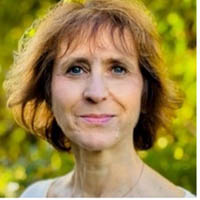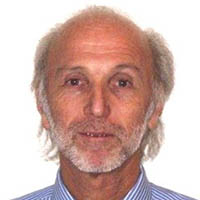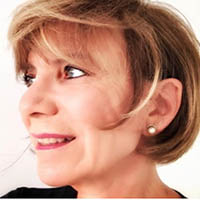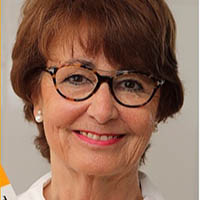THINKING LABS - 3
IPA Communications Committee

Start: September 2024
Thinking Labs are small discussion groups comprised of IPA Members and Candidates who meet online twice per month over the course of 3 months (6 meetings in total) to discuss a specific topic. At the end of the 3 months, they may produce a paper about their experience to be published on the IPA website. There is 1 group in French, 1 in English and 1 in Spanish, all commencing in September 2024. Places are limited and allocated on a first-come, first-served basis.
Click here for the Thinking Labs 1 archive.
Click here for Thinking Labs 2 archive.
Naoe Okamura
Coordinator of the Thinking Labs
French – Katy Bogliatto

“A l’écoute de la clinique de la Procréation Médicalement Assistée dans notre pratique quotidienne.”
La clinique de la procréation médicalement assistée à considérablement évolué ces dernières années, tant sur le plan des biotechnologies que des applications médicales. Ces évolutions sont également étroitement liées aux changements socioculturels induits par les mouvements des droits des femmes et les mouvements LGBTQ+, avec pour corollaire l’ouverture d’accès à de nouvelles demandes et la création de nouveaux modèles familiaux. Dans le cadre de leur pratique, tous les analystes sont, ou seront, confrontés à rencontrer des patient.e.s qui traversent des processus en PMA ou patient.e.s issus de la PMA.
Le thème traité dans ce laboratoire de réflexion se centrera sur des questions émanant de cette clinique singulière qui interroge différents axes : le féminin, le corps, la parentalité, la psycho sexualité, le symbolique, les origines de la vie, le deuil, l’éthique, etc. L’objectif de ce groupe est d’offrir un espace de réflexion théorico-clinique permettant d’élargir nos connaissances, nos représentations et notre sensibilité à cette clinique à partir de discussion de cas. Une attention particulière sera accordée au transfert-contretransfert et à l’écoute de l'émergence des sensations et des fantasmes en quête de représentations. Une attention sera également apportée au processus groupal.
Bio
Katy Bogliatto est pédopsychiatre, membre titulaire et formateur de la Société Belge de Psychanalyse et Vice-Présidente élue (2023-2025) de l’API. Elle exerce en libéral avec des adultes, des adolescents, des enfants et des jeunes enfants (psychothérapie centrée sur la parentalité) et au Centre de Procréation Médicalement Assistée (Chirec) depuis 15 ans. Elle enseigne à l'Université Libre de Bruxelles, troisième cycle :"Certificat en clinique psychothérapeutique de l'enfant et de l'adolescent" et au sein de la "Formation en psychologie clinique de la diversité de la famille et du couple". Elle enseigne également au GECFAPPE (thérapie familiale psychanalytique de la petite enfance). Elle est membre du comité de rédaction de la Revue Belge de Psychanalyse.
Maximum participants: 14
Dates: Vendredi, 13/09 et 27/09; 11/10 et 25/10; 15/11 et 29/11 à 12:00-13:30 pm (CET-Belgian Time)
Spanish - Abel Fainstein and Raya Zonana


“PREJUICIOS, DISCRIMINACIÓN Y RACISMO EN LA PRÁCTICA CLÍNICA Y SOCIAL.”
En este laboratorio de pensamiento nos centraremos en los prejuicios y la discriminación, que existen en todos nosotros y que frecuentemente negamos, así como en el racismo como un posible efecto de estos. Esto ocurre en cada uno de nosotros, en todos los grupos humanos y también entre los psicoanalistas y sus instituciones.
Pensaremos además acerca, discutiremos la comprensión psicoanalítica de la importancia del otro como objeto, modelo, auxiliar o rival, así como la otredad, el otro y la tolerancia en relación con el género, la raza y otras intersecciones.
Bio
Dr Abel Fainstein
Abel Fainstein (Buenos Aires): MD. Máster en Psicoanálisis, Psiquiatra, es miembro y expresidente de la Asociación Psicoanalítica Argentina y FEPAL de la IPA. Profesor en el Instituto Ángel Garma, Asociación Psicoanalítica Argentina. Actual presidente del Comité de Prejuicio, Discriminación y Racismo de la IPA y asesor del Diccionario Enciclopédico Interregional IRED editado por la IPA. Ex Representante de América Latina, miembro del Ex Com, CAPSA y del Comité de Asuntos Institucionales de la IPA. Presidente del Comité de Programas del Congreso Internacional de la IPA en Chicago 2009 y copresidente para América Latina del Congreso Internacional de la IPA en Río 2005. Premio Konex en Psicoanálisis 2016. Capítulos en libros y revistas en Buenos Aires, México, Londres, París, Brasil, Estados Unidos. Publicaciones recientes en Dear Candidate y Psychoanalysis at the Crossroad compilados por Fred Busch. Routledge. Coredactor de "On Training Analysis. Debates". Editorial APA.
Lic. Raya Zonana
Raya Zonana (São Paulo): Psiquiatra, Psicoanalista, miembro efectivo y docente Sociedade Brasileira de Psicanálise de São Paulo, Editora Asociada (2011/2017) y Editora en Jefe de la Revista Calíbán RLP (2017/2022). Miembro del Equipo Editorial de la Revista Ide (SBPSP 2005/2007) y de la Revista Brasileira de Psicoanálisis (2009/2014). Miembro de Comunidad y Cultura SBPSP (2007/2011) y de Comunidad y Cultura FEPAL (2014-2016).
Actualmente: representante de la América Latina en el Comité de Prejuicio, Discriminación y Racismo de la IPA, Miembro de la Comisión Virginia Bicudo (SBPSP) para acciones afirmativas de inclusión de negros, indígenas y refugiados. Publicaciones en revistas de psicoanálisis de Brasil y de América Latina.
Maximum participants: 15
Dates: Sábados. 7 y 21 de septiembre, 5 y 26 de octubre, 9 y 23 de noviembre. Hora: 16:00 a 17:30hs (London Time)
English – Gabriele Junkers Ph.D

“Calling it a day: how to bring a professional analytic life to a close, externally and internally.”
This online project will address the ending period of the analyst’s (professional) life, a topic that arouses silence, shame, and fear. Getting older is a challenging developmental task that implies coping with change, loss, and factual and actual realities. As analysts, we have a special relation to temporal reality: we work with the timeless unconscious, we live in a cyclic temporality of beginning an analysis and its ending. Decades may pass during which we are unaware of the realm of time. When reality breaks in, we may suddenly awaken from a sort of dream of immortality, often in the form of unexpected illness or sudden death.
We will discuss the personal situation of experiencing the ageing process, its relation to patients, training analysis, ethical conduct, the changing role within the institute, needing support but refusing it, and many more facets.
The aim of the group is to alert participants to possible ways of preparing for the ageing process as analysts, preparing for the institutional impacts on ageing, for possible support in cases of emergency, trying to break the silence around this topic, and trying ways to make the unspeakable a topic of open discussion.
List of References: Re “The ageing Psychoanalyst” Compiled by Gabriele Junkers (2024)
- The empty Couch by Gabriele Junkers (2013) Routledge
Especially the following articles:
- Ferro A. & G. Civitarese: Foreword
- Junkers G.: The ageing psychoanalysts: Thoughts on preparing for a life without the couch.
- Junkers G.: Later perhaps…Transience and its significance for the psychoanalyst.
- Junkers G.: When the body speaks and the psychoanalyst falls ill.
- Traesdal Tove: Analysis lost and regained.
- Denis Paul: Psychoanalyst: A profession for an immortal?
- Junkers G.: Containing Psychoanalysis: The psychoanalytic Institution.
- Kavka Audrey (2013): Psychoanalyst assistance committees: Philosophy and practicalities.
- O’Neill Mary (2013): Now is the time for action: The professional will: an ethical responsibility of the analyst and the profession.
Additional References:
- Cohen Norman (1982): On loneliness and the ageing process. Int. J. of Psychoanal. 63:149-155 and reprint in: Junkers G. (20069) Is it too late?
- Dewald P.A. & Rita W. Clark (Eds.) (2001): Ethics Case Book. New York (The American Psychoanalytic Association APA)
- Schwarz H.J. & Silver A.L. (Eds.): Illness in the Analyst: Implications for the treatment relationship. Madison CT (Intern. Univ. Press)
- Segal H. (1958): Fear of Death – notes on the analysis of an old man. Int. J. Psychoanal. 39:178-181. Reprint in: Junkers G. Is it too late?
- Shakespeare W. (1606): King Lear
- Junkers G. (2023): Maintaining and developing a containing institution: a challenge for psychoanalysts? In: Living and Containing Psychoanalysis in Institutions. Psychoanalysts working together. London: Routledge
Bio
Gabriele Junkers, Psychologist and Psychoanalyst, is a member and training analyst of the German Psychoanalytical Association (DPV). She worked in the field of gerontology for more than 40 years in different settings, taught, and has written about psychic illness in the elderly. She founded the IPA committee on ageing – of patients and psychoanalysts as well as the EPF Forum on ageing. She chaired the Ethical committee of the DPV and edited: Is it too late? (2006), The Empty Couch (2013), and Living and Containing Psychoanalysis in Institutions (2023).
Maximum participants: 15
Dates: Fridays, 06/09 and 20/09; 04/10 and 18/10; 1/11 and 15/11 at 2:00-3:30 pm (European Time)